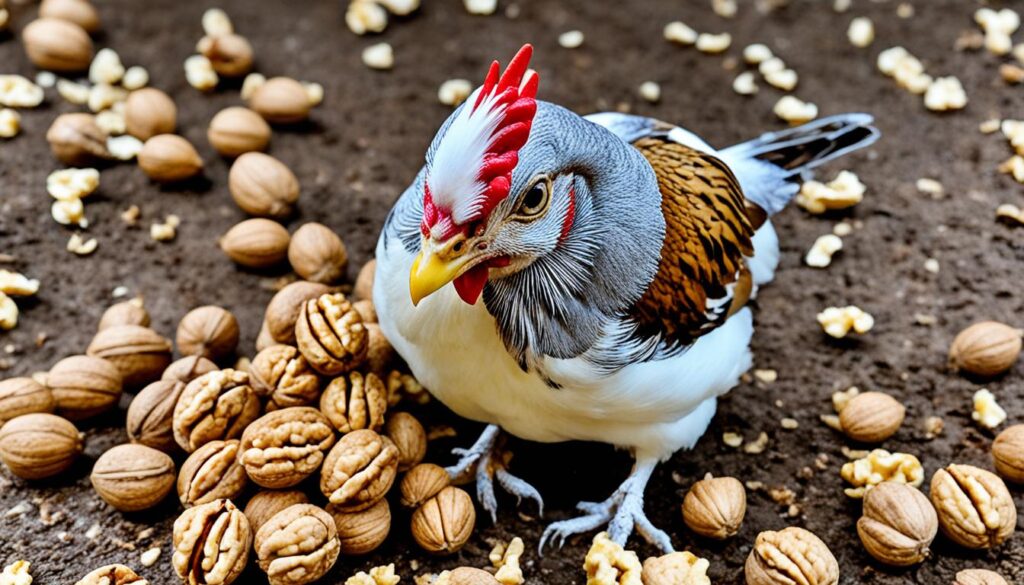Did you know only 17 private owners in the U.S. registered their big cats by June 2023? This fact shows how important it is to understand exotic pet laws. In New Jersey, these laws can be complex.
This guide will help you understand legal exotic pet ownership in New Jersey. We’ll cover what an “exotic pet” is and the rules and permits you need. You’ll be ready to make smart choices about exotic pets for your family.
Key Takeaways
- New Jersey has specific laws and regulations governing the ownership of exotic pets, including certain mammals, birds, and reptiles.
- Obtaining the necessary permits and licenses is crucial for legally owning exotic pets in New Jersey.
- The state prohibits the private ownership of certain dangerous or restricted exotic animals, such as big cats and venomous snakes.
- Proper housing, care, and access to specialized veterinary services are essential considerations when owning an exotic pet.
- Staying informed about the latest changes in New Jersey’s exotic pet laws is crucial to ensure compliance and the well-being of your exotic animal companion.
Understanding Exotic Pet Laws in New Jersey
In New Jersey, exotic pets mean animals not from the state, not including pets or farm animals. The state has strict rules for owning and releasing these animals. You need a permit from the Department of Environmental Protection (NJDEP) to have them legally.
Definition of Exotic Pets
Exotic pets in New Jersey are animals not from here, like mammals, birds, reptiles, amphibians, fish, mollusks, or crustaceans. This includes animals like the Tiger Salamander and Axolotl, as well as exotic mammals, birds, and reptiles.
Overview of New Jersey’s Regulations
The state’s Fish and Game Council decides which exotic animals are dangerous and need a permit. You must get a permit from the NJDEP to own and take care of these animals. This ensures the pet and community stay safe.
Always check with the NJDEP for the rules and permits you need for your exotic pet. Being a responsible owner and following the laws is key for the well-being of these special animals.
“In New Jersey, banned exotic pets include primates, bears, non-domestic cats, and dogs, requiring a specific permit for each exotic creature.”
what exotic pets are legal in nj
If you’re thinking about getting an exotic pet in New Jersey, you should know the rules. Some exotic pets are okay with the right permits, but others are not allowed or need special permission. Let’s look at the exotic pets you can have in the Garden State.
Legal Exotic Mammals in NJ
Some exotic mammals you can own in New Jersey with permits include mink, raccoons, and skunks. These animals are called “non-game” and you need a special permit from the state’s Department of Environmental Protection to keep them as pets.
Legal Exotic Birds in NJ
In New Jersey, not all exotic birds are allowed. Some birds like parrots and parakeets might be okay with the right paperwork and home setup. But, make sure to check the rules and get the needed permits before bringing a bird home.
Legal Exotic Reptiles in NJ
New Jersey lets you have certain snakes and lizards, like corn snakes and bearded dragons. These reptiles are popular pets, but they need the right care and housing to stay safe and healthy.
Remember, New Jersey has a list of dangerous exotic animals that are banned or need special permits. This includes big cats, wolves, bears, and venomous snakes. Having these pets without the right permission can lead to big fines and legal trouble.
Before getting an exotic pet in New Jersey, make sure to look up the laws and rules for owning them. Being a responsible pet owner and following the state’s rules is important for the well-being of you and your pet.
Obtaining Permits for Legal Exotic Pets
To legally own an exotic pet in New Jersey, you must get the right permits from the Department of Environmental Protection. This ensures you’re a responsible owner and take good care of these unique animals.
Captive Game Permit Requirements
The Captive Game Permit is key for owning an exotic pet in New Jersey. It sets rules for the animal’s living space, health, and care. The permit looks at where the animal came from, its living area, and the owner’s experience.
Import Permit Requirements
If you’re bringing an exotic pet from another state, you might need an Import Permit. This permit checks the animal’s health and where it came from. It helps stop diseases from spreading and keeps non-native species out. The Import Permit is vital for owning exotic pets in New Jersey responsibly.
Following the rules for permits and staying in compliance is important. It keeps exotic pets healthy and safe for everyone around. By doing this, you can enjoy having an exotic pet in New Jersey while also caring for animal welfare.
| Permit Type | Key Requirements |
|---|---|
| Captive Game Permit |
|
| Import Permit |
|
Knowing and following New Jersey’s exotic pet permits, exotic pet licenses nj, and exotic pet ownership nj rules is key. It lets you enjoy the benefits of exotic pet ownership nj while helping the state’s animal welfare efforts.

“Responsible exotic pet ownership in New Jersey starts with understanding and complying with the state’s permit requirements.”
Purchasing and Housing Legal Exotic Pets
Thinking about getting a legal exotic pet in New Jersey? Make sure to buy from a trusted, USDA-licensed exotic pet breeder or seller. Wrong housing and care can harm the pet and break state laws.
Reputable Breeders and Sellers
Exotic pets need special care and knowledge to do well. Good exotic pet stores in NJ and breeders will help you understand what your pet needs. They make sure the pet is healthy and right for a home.
Proper Housing and Care
Exotic pets need special homes and care. As an exotic pet owner in NJ, you must be ready to give the right care for life. This means understanding their needs and being committed to caring for them.
“Exotic pets require specialized knowledge and facilities to thrive. Responsible exotic pet stores in NJ and breeders will be able to provide guidance on the specific needs of your desired species.”

It’s key to give your exotic pet the right home and care for their health and your legal rights. Work with trusted sources to make a smart choice. This way, you’ll give your unique pet the best life possible.
Illegal Exotic Pets in New Jersey
New Jersey lets you own some exotic pets with the right permits. But, it has a strict list of banned species seen as too risky or harmful to the environment. These forbidden exotic pets include big carnivores like lions, tigers, and bears. Also, non-native canines, primates, and venomous reptiles are not allowed.
Prairie dogs are among the pets banned in New Jersey. The state is quite strict compared to its neighbors. While Delaware is more lenient with native animals, New York lets you have kangaroos. Pennsylvania requires permits for certain exotic animals.
Groups have been pushing for laws to ban large cats, bears, primates, and big poisonous snakes as pets. In New Jersey, the rules are stricter. Only a few pet fox species and lynx/bobcats are allowed, while minks and raccoons can be kept with the right permits.
Releasing exotic animals in New Jersey without a permit is also a big no-no. It can harm native wildlife and ecosystems. Pet owners need to know the strict laws to avoid trouble and keep their pets and the environment safe.
- Coydogs and wolfdogs are legal without a permit.
- Savannah cats and Bengal cats can be owned without a permit.
- Skunks and opossums are legal with a captive game permit and USDA-licensed breeder purchase.
- Bats are 100% prohibited as pets in New Jersey.
Conclusion
Exploring the world of what exotic pets are legal in New Jersey is complex. It needs careful research and following the state’s exotic pet regulations nj. Knowing which pets are allowed, the licensing process, and the care they need is key. This way, those who love exotic pets can enjoy them while keeping the animals safe and the public safe too.
New Jersey is more open to exotic pets than some states, like New York. But, it’s still important to know the laws and follow them. Always check with the Department of Environmental Protection and other authorities to make sure you’re doing things right with exotic pets in New Jersey.
By understanding the rules and focusing on the pets’ well-being, you can have a great time with exotic pets in the Garden State. With the right knowledge and dedication, owning an exotic pet can be both rewarding and fulfilling.
FAQ
What is the definition of an exotic pet in New Jersey?
In New Jersey, exotic pets are animals not native to the state. This includes mammals, birds, reptiles, amphibians, fish, mollusks, and crustaceans. It does not cover domestic pets or farm animals.
What are the general regulations around owning exotic pets in New Jersey?
Owning exotic pets in New Jersey is strictly regulated. You need permits from the Department of Environmental Protection. The Fish and Game Council decides which exotic animals are dangerous and need extra permits.
What types of exotic mammals are legal to own in New Jersey with the proper permits?
With the right permits, you can own mink, raccoons, and skunks as exotic mammals in New Jersey.
What types of exotic birds and reptiles are legal to own in New Jersey with the proper permits?
Legal exotic birds in New Jersey are fewer in number. You can own certain snakes and lizards with the right permits.
What are the key requirements for legally owning an exotic pet in New Jersey?
To own an exotic pet legally in New Jersey, you must get a Captive Game Permit. This permit has rules about where the animal comes from, its living space, and its care. If the pet comes from another state, you’ll also need an Import Permit.
Where can you purchase legal exotic pets in New Jersey?
To buy a legal exotic pet in New Jersey, make sure to get it from a reputable USDA-licensed breeder or seller.
What exotic pets are prohibited or considered too dangerous to own in New Jersey?
New Jersey has banned some exotic pets because they are too dangerous or could harm the environment. This includes big carnivores like lions, tigers, and bears. Also, non-native canines, primates, and venomous reptiles are not allowed.




Your article helped me a lot, is there any more related content? Thanks!
Thanks , You Can Visit our Blog Section and Subscribe to our Resources . Thanks